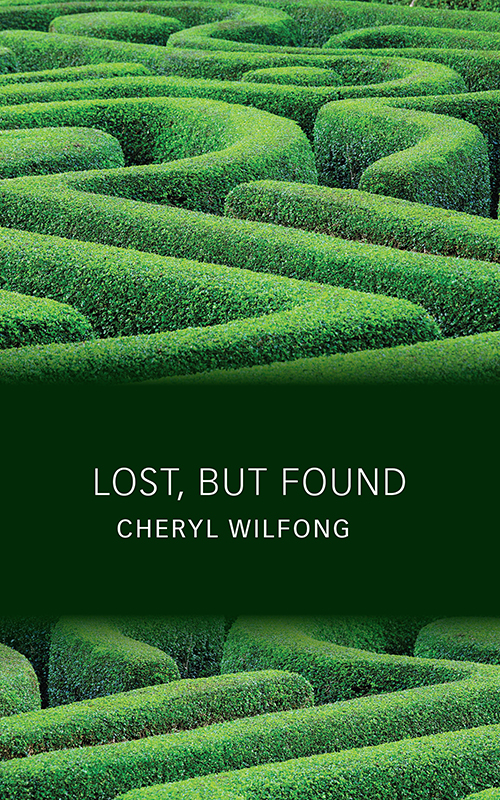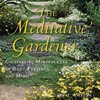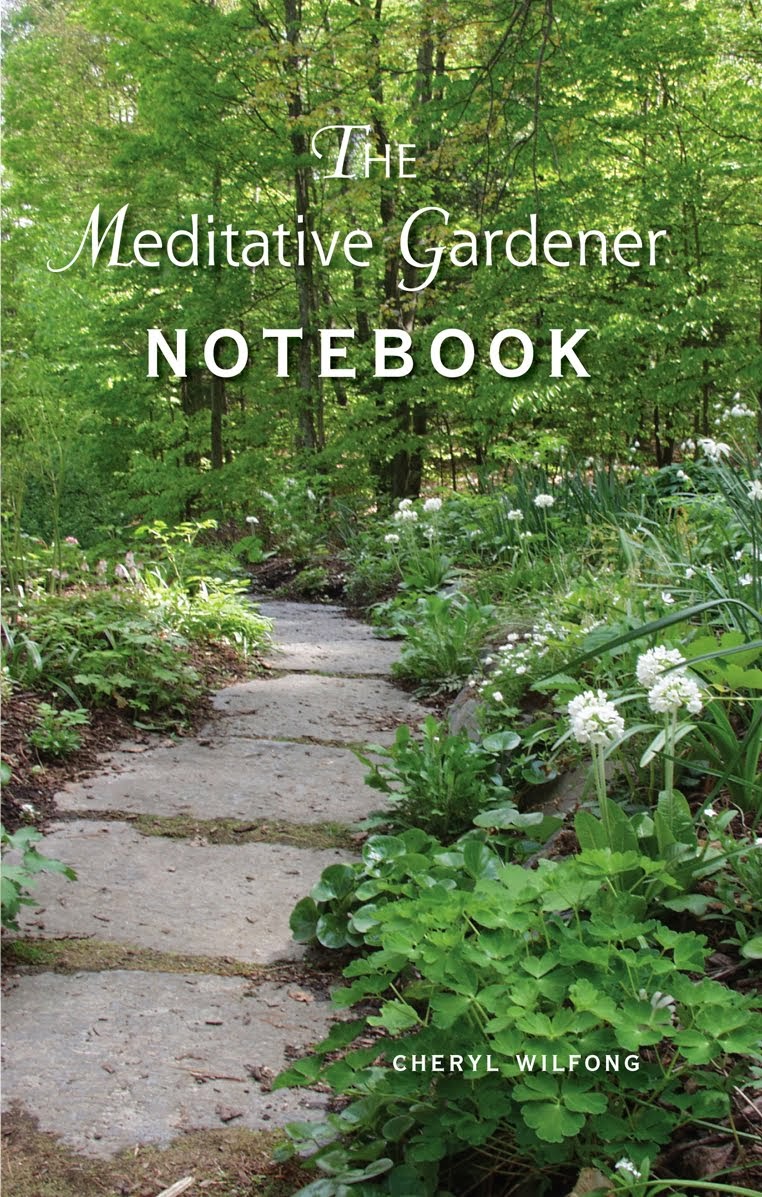We choose perennial flowers for our gardens because they come back year after year. How about perennial vegetables? Nature provides many of these green "provisions."
The spring begins with dandelion greens that can be dug out of your front yard (assuming you don't "chem" your lawn.) Wild leeks live in the woods, so require foraging in the forest. Egyptian or walking onions are poking their pointy tips up in the herb garden. Now that last year's onion supply is gone, use fresh green onion leaves from your garden in all your cooking, whenever a recipe calls for onion.
Now sorrel is showing up. I have French sorrel and buckler's sorrel in my herb garden to make a delightful lemony green soup. Acidic soil around here grows sheep's sorrel in profusion--tiny, tart leaves that can be added to a salad for zest.
Nettles are next. Wear your nitrile gloves and cut the top few inches of green, which are mostly not stinging--yet. It is said that the 12th century Tibetan saint, Milarepa, lived on nettle soup for decades. Nettles are rich in Vitamin C, iron, and also contain protein.
Fiddlehead ferns are beginning to uncurl, so go harvest them now. (The ostrich ferns with the brown papery covering. Not the fuzzy-heads.)
Perennial philosophy--wisdom that cuts across all religious traditions--also sustains us. For instance, the Golden Rule is found in all the world's religions.
Just for today:
Practice doing something for someone else as you would like another to do to you.
Practice not-doing something that you would rather not happen to you. (e.g., that brilliant stinging comment.)
Perennial vegetables sustain our body. Perennial wisdom sustains our mind.
Wednesday, April 27, 2011
Tuesday, April 26, 2011
A Native Flower Naturalizes
I brought some bloodroot into one of my flowerbeds about 10 years ago, and there it stayed, dependably returning every year. Then i transplanted some of these little white  wildflowers into my white garden. About 3 years ago, i started seeing bloodroot, little colonies of bloodroot in various places: in the middle of my bulb garden (where tall things usually grow), in my blue garden, and under an old apple tree. This year i am finding them in the woods.
wildflowers into my white garden. About 3 years ago, i started seeing bloodroot, little colonies of bloodroot in various places: in the middle of my bulb garden (where tall things usually grow), in my blue garden, and under an old apple tree. This year i am finding them in the woods.
I love when a native plant naturalizes itself in my gardens.
As we meditate and then contemplate teachings that inspire us, beneficial qualities begin to naturalize and flower in our inner garden--calm, kindness, generosity. Perhaps the happiness of a half smile.
Be the garden you would like to see.
 wildflowers into my white garden. About 3 years ago, i started seeing bloodroot, little colonies of bloodroot in various places: in the middle of my bulb garden (where tall things usually grow), in my blue garden, and under an old apple tree. This year i am finding them in the woods.
wildflowers into my white garden. About 3 years ago, i started seeing bloodroot, little colonies of bloodroot in various places: in the middle of my bulb garden (where tall things usually grow), in my blue garden, and under an old apple tree. This year i am finding them in the woods.I love when a native plant naturalizes itself in my gardens.
As we meditate and then contemplate teachings that inspire us, beneficial qualities begin to naturalize and flower in our inner garden--calm, kindness, generosity. Perhaps the happiness of a half smile.
Be the garden you would like to see.
Monday, April 25, 2011
So Good to See You. Can You Remind Me What Your Name Is?
My old friends, my perennials, are poking their heads out to say, "Hello again." I am SO happy to see them, one by one. But, just like acquaintances i haven't seen for several months, i can't remember their names.
I smile and open my arms wide. "So good to see you again. Ah-ah-ah. Can you remind me what your name is?"
Minutes or hours later, their name comes to me, and that memory/thought is a pleasant feeling, all by itself. Oh yes! Alchemilla (al-Camilla?) Lady's Mantle.
That name, that pleasant feeling is sufficient to start a whole train of pleasant feelings--thinking of how she looks just after it's rained, and her mantle-leaf has caught jewel-looking raindrops that roll around like mercury. Yes, she's a mistress of alchemy, all right. Turning water into chem-istry.
Pleasant. Pleasant. Pleasant.
I smile and open my arms wide. "So good to see you again. Ah-ah-ah. Can you remind me what your name is?"
Minutes or hours later, their name comes to me, and that memory/thought is a pleasant feeling, all by itself. Oh yes! Alchemilla (al-Camilla?) Lady's Mantle.
That name, that pleasant feeling is sufficient to start a whole train of pleasant feelings--thinking of how she looks just after it's rained, and her mantle-leaf has caught jewel-looking raindrops that roll around like mercury. Yes, she's a mistress of alchemy, all right. Turning water into chem-istry.
Pleasant. Pleasant. Pleasant.
Sunday, April 24, 2011
Ode to Shovels
I needed a snow shovel yesterday to clear away the 2 inches of wet snow on the hot tub deck. However, the snow shovels were in deep storage, hanging on nails on the wall of the garage behind the stack of 8 snow tires.
I say snow shovelS (plural), because, in the winter, we keep a snow shovel at each door--the front door, the back door, and the deck door. But, of course, they had all been put away weeks ago.
I also have three D-handled shovels that i scatter around: one lives at the vegetable garden, one at the compost pile, and one in the lower flower gardens. (My house is built into a hillside.)
I prefer the D-handled shovels because i am 5'3" and shrinking. I do have a long-handled shovel just in case someone tall (ahem!) wants to help me. But it hangs on a nail on the garage wall 364 days a year.
I also have a spade that i love--a transplanting spade with a long, narrow blade that goes deep (good for planting bulbs), but is incisive because of its narrowness.
My latest acquisition is a spear-head spade--a shovel that slices through thick bundles of roots (hosta or daylilies, for example) and is easy on the back.
We dig into the Dharma with a mind that is as calm and sharp as we can make it today through our meditation practice. Some days, perhaps many days, the mind won't be all that calm or all that sharp. Nevertheless, after our 20 minutes (or longer) meditation, we can spend 5 or 10 minutes contemplating some aspect of the Dharma. Choose any page from The Meditative Gardener. Or a paragraph from the Dharma book or other inspirational book you are currently reading. Focus your attention on that teaching and roll it around in your mind for a few minutes.
A calm mind is an incisive mind that can dig right into the roots of stress.
Use the tools you have to dig into life--as it really is.
I say snow shovelS (plural), because, in the winter, we keep a snow shovel at each door--the front door, the back door, and the deck door. But, of course, they had all been put away weeks ago.
I also have three D-handled shovels that i scatter around: one lives at the vegetable garden, one at the compost pile, and one in the lower flower gardens. (My house is built into a hillside.)
I prefer the D-handled shovels because i am 5'3" and shrinking. I do have a long-handled shovel just in case someone tall (ahem!) wants to help me. But it hangs on a nail on the garage wall 364 days a year.
I also have a spade that i love--a transplanting spade with a long, narrow blade that goes deep (good for planting bulbs), but is incisive because of its narrowness.
My latest acquisition is a spear-head spade--a shovel that slices through thick bundles of roots (hosta or daylilies, for example) and is easy on the back.
We dig into the Dharma with a mind that is as calm and sharp as we can make it today through our meditation practice. Some days, perhaps many days, the mind won't be all that calm or all that sharp. Nevertheless, after our 20 minutes (or longer) meditation, we can spend 5 or 10 minutes contemplating some aspect of the Dharma. Choose any page from The Meditative Gardener. Or a paragraph from the Dharma book or other inspirational book you are currently reading. Focus your attention on that teaching and roll it around in your mind for a few minutes.
A calm mind is an incisive mind that can dig right into the roots of stress.
Use the tools you have to dig into life--as it really is.
Saturday, April 23, 2011
Easter Bunny Visits Today!
It's snowing! All the easier to track the Easter bunny tomorrow :)
The Easter bunny is visiting me this afternoon with a REALLY big present--a truckload of bunny manure. These little chocolate-colored balls are mild enough that they can be scattered right on the gardens; they don't burn plants and the manure is weed-free.
Think about it: pellets in, pellets out. No weeds in the bunnies dinner means no weed seeds, unlike other, larger animal manures.
This chain of cause-and-effect applies to our lives as well. By practicing Right Speech that is true, useful, and beneficial, both outwardly with other people, including cyberspace, and inwardly, in our own mind, we'll find we have fewer weeds growing in our minds.
So, when visitors to my garden look puzzled and say, "Hey. Isn't that bunny...?" i just nod and smile.
The Easter bunny is visiting me this afternoon with a REALLY big present--a truckload of bunny manure. These little chocolate-colored balls are mild enough that they can be scattered right on the gardens; they don't burn plants and the manure is weed-free.
Think about it: pellets in, pellets out. No weeds in the bunnies dinner means no weed seeds, unlike other, larger animal manures.
This chain of cause-and-effect applies to our lives as well. By practicing Right Speech that is true, useful, and beneficial, both outwardly with other people, including cyberspace, and inwardly, in our own mind, we'll find we have fewer weeds growing in our minds.
So, when visitors to my garden look puzzled and say, "Hey. Isn't that bunny...?" i just nod and smile.
Thursday, April 21, 2011
Bugs--on the Plants and in the Body
The houseplants have been cooped up in the house all winter, and, now, with the change of season, they're getting bugs. And i've caught a bug too.
I set the sickest houseplants on the front step to sun themselves, have a rainwater bath, and get some fresh air. Their anti-bio-tic is the bigger bugs that will dine on the little aphids and spider mites. I myself am taking hot baths and bundling up to stay warm in order to balance the cold that's affecting my respiration.
We are of the nature to become ill. Sickness is unavoidable.
I didn't ask to become ill. I don't want to be sick. Yet, here is the body, feeling poorly and fighting off some intruding bug. Sunning myself today, after a hot water bath, will ease the discomfort.
I set the sickest houseplants on the front step to sun themselves, have a rainwater bath, and get some fresh air. Their anti-bio-tic is the bigger bugs that will dine on the little aphids and spider mites. I myself am taking hot baths and bundling up to stay warm in order to balance the cold that's affecting my respiration.
We are of the nature to become ill. Sickness is unavoidable.
I didn't ask to become ill. I don't want to be sick. Yet, here is the body, feeling poorly and fighting off some intruding bug. Sunning myself today, after a hot water bath, will ease the discomfort.
Pleasant AND Unpleasant
Overcast skies. Misting rain. 46 degrees.
The weather looks unpleasant, so i avoid going out to the garden for as long as i can. I want to work in the garden, and i don't want to go outdoors. Approach/avoidance.
I think about a project i want to do. A project that is part of a line of dominoes: i want to order another truckload of bark mulch, but i have to clean up the load of wood chips that is sitting where the truck will dump the mulch. In order to use the wood chips on a path around the moss garden, i have to first of all widen the path. This means i have to move the big rocks that border the path and reset them.
Are we tired yet?
Finally, after repeatedly looking out the window at the project area, desire (pleasant) trumps all those little unpleasantnesses--rain, chill, and the labor of hauling the wood chips and moving rocks. From indoors, all those unpleasantries are just thoughts. Once i bundle up in boots, my garden coat, and garden gloves, i walk outdoors into bird-singing spring.
The weather looks unpleasant, so i avoid going out to the garden for as long as i can. I want to work in the garden, and i don't want to go outdoors. Approach/avoidance.
I think about a project i want to do. A project that is part of a line of dominoes: i want to order another truckload of bark mulch, but i have to clean up the load of wood chips that is sitting where the truck will dump the mulch. In order to use the wood chips on a path around the moss garden, i have to first of all widen the path. This means i have to move the big rocks that border the path and reset them.
Are we tired yet?
Finally, after repeatedly looking out the window at the project area, desire (pleasant) trumps all those little unpleasantnesses--rain, chill, and the labor of hauling the wood chips and moving rocks. From indoors, all those unpleasantries are just thoughts. Once i bundle up in boots, my garden coat, and garden gloves, i walk outdoors into bird-singing spring.
Wednesday, April 20, 2011
Cause and Effect
Yesterday i spent half the day outdoors--hauling bark mulch in a wheelbarrow, hauling brush to a brush pile, laying big roundish river rocks along the edges of a path.
Today my body aches, my lower back is tired, and i move stiffly.
Cause and effect. More exercise than i am used to leads to an aching body.
Cause and effect is also at work in our minds. Negative thoughts give rise to more negative thoughts. Kindness gives rise to kindness. Plant a radish, get a radish, not a Brussels sprout.
Karma is another word for this chain of cause-and-effect. Our actions--physical, mental, or verbal--lay down the patterns for our future. As the neuroscientists say, neurons that fire together, wire together.
What would you like to harvest? Craving, irritation, or kindness?
Today my body aches, my lower back is tired, and i move stiffly.
Cause and effect. More exercise than i am used to leads to an aching body.
Cause and effect is also at work in our minds. Negative thoughts give rise to more negative thoughts. Kindness gives rise to kindness. Plant a radish, get a radish, not a Brussels sprout.
Karma is another word for this chain of cause-and-effect. Our actions--physical, mental, or verbal--lay down the patterns for our future. As the neuroscientists say, neurons that fire together, wire together.
What would you like to harvest? Craving, irritation, or kindness?
Tuesday, April 19, 2011
Wild Leeks
Wild leeks are growing in the woods. Their roots look like scallions, but their 2 or 3 leaves are broad, like lily-of-the-valley. Also called ramps, they definitely smell like onions. (Rapunzel's pregnant mother craved ramps, and when her father met an old woman in the forest, he agreed to give her the child if she would just tell him where to find these ramps aka rapunzel.)
When you find them, these wild leeks carpet the dead-leaf-brown forest floor with green. The colony i found yesterday was 50 yards long and 15 yards wide.
Wild leeks grow in calcium-rich soils, which, while not rare around here, are not common either. Blue cohosh grows among the wild leeks, as do trillium and dutchman's breeches. Nature's companion plants grow in the same habitat.
We plant ourselves among like-minded people in order to nurture our best traits. And we cross our fingers that the teenagers we know choose the "right" peer group. We know very well the consequences of hanging out with people of low moral character.
Do your companions nurture the best in you?
When you find them, these wild leeks carpet the dead-leaf-brown forest floor with green. The colony i found yesterday was 50 yards long and 15 yards wide.
Wild leeks grow in calcium-rich soils, which, while not rare around here, are not common either. Blue cohosh grows among the wild leeks, as do trillium and dutchman's breeches. Nature's companion plants grow in the same habitat.
We plant ourselves among like-minded people in order to nurture our best traits. And we cross our fingers that the teenagers we know choose the "right" peer group. We know very well the consequences of hanging out with people of low moral character.
Do your companions nurture the best in you?
Monday, April 18, 2011
Grounded in Meditation
My sweetie and i vacation a few times a year. He would love to travel now to see spring gardens in the South, but i'm grounded.
April and May are intensive gardening months here at home. I'm not going anywhere. I can't even imagine why people would willingly leave home, because the schools have spring break this week. Outdoors is sufficient vacation for me.
Wherever you are, ground yourself in your meditation practice. Vacation is a particularly difficult time to keep meditation practice going. Just sit in bed; fold your bed pillow in two, and sit with your back against the wall.
I don't need a vacation from my garden, and none of us needs a vacation from our meditation practice.
April and May are intensive gardening months here at home. I'm not going anywhere. I can't even imagine why people would willingly leave home, because the schools have spring break this week. Outdoors is sufficient vacation for me.
Wherever you are, ground yourself in your meditation practice. Vacation is a particularly difficult time to keep meditation practice going. Just sit in bed; fold your bed pillow in two, and sit with your back against the wall.
I don't need a vacation from my garden, and none of us needs a vacation from our meditation practice.
Sunday, April 17, 2011
Full Moon
Janice Stillman, editor of the Old Farmers Almanac, recently gave an entertaining talk to our garden club. She personifies the intent of the founding publisher 219 years ago to be both informative and humorous.
She reminded us about planting according to the cycles of the moon. Astrologically, there are other best days to diet, prune trees, or make sauerkraut.
The monks and nuns of Asia celebrate the new and full moons each month by sitting in meditation all night long.
We can choose 1 or 2 days a month to spent at a half-day or full-day retreat with other meditators. Some people celebrate the new and full moons by practicing the 6th precept of not eating after 12:00 noon. This tradition leaves more time to dedicate to our practice.
The full moon is tonight at 10:44 p.m. (EST). Celebrate the night's light.
She reminded us about planting according to the cycles of the moon. Astrologically, there are other best days to diet, prune trees, or make sauerkraut.
The monks and nuns of Asia celebrate the new and full moons each month by sitting in meditation all night long.
We can choose 1 or 2 days a month to spent at a half-day or full-day retreat with other meditators. Some people celebrate the new and full moons by practicing the 6th precept of not eating after 12:00 noon. This tradition leaves more time to dedicate to our practice.
The full moon is tonight at 10:44 p.m. (EST). Celebrate the night's light.
Saturday, April 16, 2011
Body-Mind
'Tis the season for doing a lot of heavy work in the garden: spreading compost/mulch on the beds; refreshing the paths with a new layer of wood chips; spreading a rough mulch along the edges of the woods to even out borders; raking, shoveling, turning the vegetable garden over.
The mind plans. The mind gives the orders. The body doesn't jump-to as fast as it used to. The body is stretching out the kinks in its lower back and wants to take a break. The mind is thinking of the future. A garden group will be visiting in less than 3 weeks. If the mind could, it would whip the body until the body did the will of the mind.
Contemplate this relationship between body and mind while you are in the garden today.
What do you see?
The mind plans. The mind gives the orders. The body doesn't jump-to as fast as it used to. The body is stretching out the kinks in its lower back and wants to take a break. The mind is thinking of the future. A garden group will be visiting in less than 3 weeks. If the mind could, it would whip the body until the body did the will of the mind.
Contemplate this relationship between body and mind while you are in the garden today.
What do you see?
Friday, April 15, 2011
The Gardener--and the Garden--Age
I recently heard Sydney Eddison talk about "Time and the Garden." At 78, she talks and writes about down-sizing her extensive gardens. Ease of management has become her top priority.
Widowed in 2004, she says what every widow knows: Major adjustments are needed. She has had to take on tasks--such as maintenance of the lawn mower--in which she is not really interested. More and more she pays other people to help her maintain her spectacular gardens.
We are all of the nature to grow old--even our beautiful gardens that become more shady with maturing shrubs and trees.
Sydney Eddison shows us a garden plan for aging and garden-aging gracefully.
Widowed in 2004, she says what every widow knows: Major adjustments are needed. She has had to take on tasks--such as maintenance of the lawn mower--in which she is not really interested. More and more she pays other people to help her maintain her spectacular gardens.
We are all of the nature to grow old--even our beautiful gardens that become more shady with maturing shrubs and trees.
Sydney Eddison shows us a garden plan for aging and garden-aging gracefully.
Thursday, April 14, 2011
Married to My Gardens
My sweetie accuses me of spending my libido on the garden in the spring. As much as i deny it, maybe he's not far wrong.
Now that i'm putting my hands in dirt most days, i've taken off my rings and won't put them on again until the end of gardening in November.
You could say i'm married to my gardens.
I jump out of bed and leave my bed partner snoozing while i go see what's new in the garden. These April evenings i spend with my seedlings, transplanting them into pots, while the person who lives with me is watching TV.
The third (of the 5) precepts is to refrain from sexual misconduct.
Does that include your relationship with your garden?
Now that i'm putting my hands in dirt most days, i've taken off my rings and won't put them on again until the end of gardening in November.
You could say i'm married to my gardens.
I jump out of bed and leave my bed partner snoozing while i go see what's new in the garden. These April evenings i spend with my seedlings, transplanting them into pots, while the person who lives with me is watching TV.
The third (of the 5) precepts is to refrain from sexual misconduct.
Does that include your relationship with your garden?
Wednesday, April 13, 2011
Salamander Crossings
The Garden Club held its annual meeting and dinner at a lovely New England inn. At our table for 7, five of us talked about salamanders. One member, Karen Golden, is an official salamander crossing guard.
Perhaps you, like the 2 women at our table, are in the dark about salamanders. But now that the frost is out of ground, 3 types of salamanders and 2 types of frogs are just waiting for a rainy night that is above 41 degrees to shiver toward the orgy of a nearby vernal pool--springtime pockets of water in the woods that last for at least 6 weeks, which is long enough for salamander and frog eggs to hatch.

The trouble is, roads have been built between the salamanders' homes, where they live 51 weeks out of the year, and the lure of nearby pools of water where they re-union. These cold-blooded creatures are cold and logy, so they move very slowly across a road, where speeding cars don't even notice a black blob on blacktop, even if it does have bright yellow spots.
Crossing guards with flashlights help salamanders and frogs across the road like scouts assisting little old ladies. Nevertheless roads are often littered with smooshed soft amphibian bodies the next morning.
We are all of the nature to die, but some of us give Nature a helping hand to prolong the lives of certain 4-leggeds that are in the dark on a chilly spring night.
May all creatures be free from suffering. May all creatures--even salamanders and frogs--have ease of well-being.
Perhaps you, like the 2 women at our table, are in the dark about salamanders. But now that the frost is out of ground, 3 types of salamanders and 2 types of frogs are just waiting for a rainy night that is above 41 degrees to shiver toward the orgy of a nearby vernal pool--springtime pockets of water in the woods that last for at least 6 weeks, which is long enough for salamander and frog eggs to hatch.

The trouble is, roads have been built between the salamanders' homes, where they live 51 weeks out of the year, and the lure of nearby pools of water where they re-union. These cold-blooded creatures are cold and logy, so they move very slowly across a road, where speeding cars don't even notice a black blob on blacktop, even if it does have bright yellow spots.
Crossing guards with flashlights help salamanders and frogs across the road like scouts assisting little old ladies. Nevertheless roads are often littered with smooshed soft amphibian bodies the next morning.
We are all of the nature to die, but some of us give Nature a helping hand to prolong the lives of certain 4-leggeds that are in the dark on a chilly spring night.
May all creatures be free from suffering. May all creatures--even salamanders and frogs--have ease of well-being.
Tuesday, April 12, 2011
Look Alikes and Feel Alikes
The tree service came and cut down 3 black birch trees. Black birches look very much like cherry trees. To tell them apart, break a black birch twig, and the scent of wintergreen washes over you. Chew on the little stick, and refresh your breath.
I now have a pile of wood chips that smells like a wintergreen LifeSaver factory. Ahhh.
I use these wood chips for my garden paths. After hauling a dozen garden cart loads, i simply laid down on the brand new wood chip path and breathed in that wonderful aroma.
The sublime emotions that we cultivate in meditation--loving-kindness, compassion, appreciative joy--each has a "near enemy"--a worldly emotion that looks and feels very similar to the sublime emotion, but it just doesn't "smell" as wonderful.
For instance, the near enemy of compassion is pity. "Oh, those poor people." Pity closes off a little corner of the heart. "There but for the grace of God go I." Whew! I escaped that terrible thing. "My heart goes out to them," (but how about allowing them right into your heart?)
Compassion opens the heart wide--no holds and no bars. Because when we look closely, we can find that other person in ourselves.
The "flavor" of compassion is different from pity. The flavor of loving-kindness is different than attachment. The flavor of appreciative joy is different than the comparing mind that checks to see whether we have more or less, or the same, as others.
Relax into compassion or loving-kindness today, and breathe in their wonder scents.
I now have a pile of wood chips that smells like a wintergreen LifeSaver factory. Ahhh.
I use these wood chips for my garden paths. After hauling a dozen garden cart loads, i simply laid down on the brand new wood chip path and breathed in that wonderful aroma.
The sublime emotions that we cultivate in meditation--loving-kindness, compassion, appreciative joy--each has a "near enemy"--a worldly emotion that looks and feels very similar to the sublime emotion, but it just doesn't "smell" as wonderful.
For instance, the near enemy of compassion is pity. "Oh, those poor people." Pity closes off a little corner of the heart. "There but for the grace of God go I." Whew! I escaped that terrible thing. "My heart goes out to them," (but how about allowing them right into your heart?)
Compassion opens the heart wide--no holds and no bars. Because when we look closely, we can find that other person in ourselves.
The "flavor" of compassion is different from pity. The flavor of loving-kindness is different than attachment. The flavor of appreciative joy is different than the comparing mind that checks to see whether we have more or less, or the same, as others.
Relax into compassion or loving-kindness today, and breathe in their wonder scents.
Monday, April 11, 2011
Thawing the Compost Pile
I have a confession to make. I'm a Master Composter, and....
My compost pile is an iceberg.
Yes, i know the heap is supposed to be hot, but mine is cold. Really cold. Frozen solid. I managed to scrape 2 inches off the top before i hit the frost line.
The trauma or suffering of our past can be just such frozen compost. If the old stuff from the past is still bothering you, begin with forgiveness. Forgiveness of yourself first of all. You might spend a day, a week, or a year forgiving yourself.
Later, you can practice forgiving the other person. (This does not mean that you condone the action.)
Without a foundation of forgiveness, our spiritual practice just spins its wheels.
Breathe in your suffering--that cold, dark, hard place--and breath out light and warmth to yourself. Fill yourself with light. Fill yourself with warmth and caring.
Light and warmth will thaw out that old compost pile.
My compost pile is an iceberg.
Yes, i know the heap is supposed to be hot, but mine is cold. Really cold. Frozen solid. I managed to scrape 2 inches off the top before i hit the frost line.
The trauma or suffering of our past can be just such frozen compost. If the old stuff from the past is still bothering you, begin with forgiveness. Forgiveness of yourself first of all. You might spend a day, a week, or a year forgiving yourself.
Later, you can practice forgiving the other person. (This does not mean that you condone the action.)
Without a foundation of forgiveness, our spiritual practice just spins its wheels.
Breathe in your suffering--that cold, dark, hard place--and breath out light and warmth to yourself. Fill yourself with light. Fill yourself with warmth and caring.
Light and warmth will thaw out that old compost pile.
Sunday, April 10, 2011
The Solitude of the Garden
I attended a garden symposium yesterday and happened to sit next to Anne Squires, a Master Gardener who lives at the other end of the state.
"Did you come with a friend?" i asked.
"Oh, no, i came by myself," she said. "I love the solitude of the garden, and i think gardeners are more able to go do things by themselves. Some of my friends don't go anywhere by themselves."
It's true that not everyone loves solitude, but the garden is a perfect place for those of us who need to get away from it all for a while--even it that's only for a few minutes.
If we wait until we have company, we may find ourselves delaying our heart's desire for a long time--even a life time.
What do our hearts desire? Peace, happiness, freedom from suffering. What, specifically, does your tender heart desire? Contemplate this while you are in the garden today.
Solitude--or the garden--is a fine place to listen to the still, small voice of our heart.
"Did you come with a friend?" i asked.
"Oh, no, i came by myself," she said. "I love the solitude of the garden, and i think gardeners are more able to go do things by themselves. Some of my friends don't go anywhere by themselves."
It's true that not everyone loves solitude, but the garden is a perfect place for those of us who need to get away from it all for a while--even it that's only for a few minutes.
If we wait until we have company, we may find ourselves delaying our heart's desire for a long time--even a life time.
What do our hearts desire? Peace, happiness, freedom from suffering. What, specifically, does your tender heart desire? Contemplate this while you are in the garden today.
Solitude--or the garden--is a fine place to listen to the still, small voice of our heart.
Saturday, April 9, 2011
Sprouting Mindfulness
My neighbor Connie has started arugula and spinach in a 3-foot square patch of..., well, lawn, actually. On the south side of her deck, she cleared a bit of grass, sowed her seeds at the end of March and covered them with clear plastic. The plastic both retains moisture and warms the earth since we are still in maple sugaring season here (when nights are below freezing and days are above.)
1/2 inch tall green sprouts (hardy!) are growing in short rows, so she has rolled the plastic back. Now that the plants have gotten started, they can withstand the chill.
We can start our meditation practice anywhere. In the car, washing dishes, going to the bathroom. All we need is the intention to take a mindful moment.
Choose one daily activity to be mindful of: walking down a familiar hallway, waiting at a stoplight, listening to the phone ringing 2 times before answering on the 3rd ring.
Roll back the plastic busy-ness that covers your life and notice the sprouts of mindfulness.
1/2 inch tall green sprouts (hardy!) are growing in short rows, so she has rolled the plastic back. Now that the plants have gotten started, they can withstand the chill.
We can start our meditation practice anywhere. In the car, washing dishes, going to the bathroom. All we need is the intention to take a mindful moment.
Choose one daily activity to be mindful of: walking down a familiar hallway, waiting at a stoplight, listening to the phone ringing 2 times before answering on the 3rd ring.
Roll back the plastic busy-ness that covers your life and notice the sprouts of mindfulness.
Friday, April 8, 2011
Pansy Substitutes
I love pansies. Their cheerful faces look like i feel now that spring is springing. But given the vast amount of tan-brown in my flower beds, a 6-pack of pansies doesn't go very far. That's the reason i now put pansies in a big pot right beside the door. I can see them and smile every time i come home. A container of pansies looks full and inviting.
Out in the vegetable garden, johnny-jump-ups are beginning to bloom. There are so many that i treat them like weeds. But now i realize i can transplant my bumper crop of johnny-jump-ups into flower beds near the house and have the thrill of pansies. Granted, johnny-jump-ups aren't as big as pansies, but they have the same sweet smiling faces--just smaller.
Sometimes, the happiness or calm we hoped to gain from meditation just isn't as full as we expected. Life can look rather brown and dingy occasionally. Look closely at the sweetness/joy/contentment that you do experience in meditation. It may be very small. In fact, it may be very, very small--just one second. Transplant that one second into your life repeatedly, and pretty soon you'll have a whole pot full of happiness every time you come home to meditation.
Out in the vegetable garden, johnny-jump-ups are beginning to bloom. There are so many that i treat them like weeds. But now i realize i can transplant my bumper crop of johnny-jump-ups into flower beds near the house and have the thrill of pansies. Granted, johnny-jump-ups aren't as big as pansies, but they have the same sweet smiling faces--just smaller.
Sometimes, the happiness or calm we hoped to gain from meditation just isn't as full as we expected. Life can look rather brown and dingy occasionally. Look closely at the sweetness/joy/contentment that you do experience in meditation. It may be very small. In fact, it may be very, very small--just one second. Transplant that one second into your life repeatedly, and pretty soon you'll have a whole pot full of happiness every time you come home to meditation.
Thursday, April 7, 2011
Even Mountains Change
After writing about change yesterday--even in mountains--i drove by a sheer rock face of a hillside, some of which had broken off and was now lying in a heap on the side of the road. The state highway department had dump trucks lined up to haul away the sloughed-off shiny schist.
Sometimes mountains change fast like this; sometimes change is simply a single drop of dripping water.
Brussels sprout seeds that i planted on Sunday's new moon popped up out of the dirt yesterday. Beautiful green change.
Sometimes mountains change fast like this; sometimes change is simply a single drop of dripping water.
Brussels sprout seeds that i planted on Sunday's new moon popped up out of the dirt yesterday. Beautiful green change.
Wednesday, April 6, 2011
The Season of Change (and LOTS of it)
A month from today, Perennial Swappers, our local garden group, will come tour my gardens. Today half my flower beds are still covered by snow, and the lawn is seriously soggy. So far, 3 flowers have bloomed--snowdrops, crocuses, and iris reticulata. Johnny-jump-ups will probably bloom today.
Change, LOTS of change, is just about to happen.
Some people don't like change--it's unpredictable, it's uncontrollable, and it may not be what I want. The great unknown might be a scary place.
Nevertheless, change is constantly happening. Nothing is permanent, although some things--such as mountains and rivers--change slowly. We try to hang on to what is, only to find it slipping through our fingers. Even though "is" sounds stationary, "is" is constantly moving.
Our gardens are changing fast in this change of seasons. Impermanence rules.
How do you feel about change?
Change, LOTS of change, is just about to happen.
Some people don't like change--it's unpredictable, it's uncontrollable, and it may not be what I want. The great unknown might be a scary place.
Nevertheless, change is constantly happening. Nothing is permanent, although some things--such as mountains and rivers--change slowly. We try to hang on to what is, only to find it slipping through our fingers. Even though "is" sounds stationary, "is" is constantly moving.
Our gardens are changing fast in this change of seasons. Impermanence rules.
How do you feel about change?
Tuesday, April 5, 2011
April Showers
March came in like a lion and went out like a lamb, and in between, it was the muddiest march of lions and lambs i have ever seen.
Now the mud is draining down INTO the ground instead of on TOP of the earth (because the frost is nearly out of the ground).
The proverbial April showers have begun! Well, 2 of these so far have been snow showers, but rain, rain, rain, is the forecast. My abbreviated Accuweather icon even shows a sun with raindrops coming out of it. (???)
Whatever weather happens, we are at the mercy of the elements--air, water, earth, and heat (or lack thereof). Actually, we are nothing more than a combination of elements ourselves.
The wind blows; we breathe.
The rain falls; we urinate.
Water flows; our blood circulates.
Earth supports us; our material bodies support Awareness.
Heat and cold come and go; our warm bodies compost vegetable matter.
Soon enough, our cold bodies will return to earth.
Now the mud is draining down INTO the ground instead of on TOP of the earth (because the frost is nearly out of the ground).
The proverbial April showers have begun! Well, 2 of these so far have been snow showers, but rain, rain, rain, is the forecast. My abbreviated Accuweather icon even shows a sun with raindrops coming out of it. (???)
Whatever weather happens, we are at the mercy of the elements--air, water, earth, and heat (or lack thereof). Actually, we are nothing more than a combination of elements ourselves.
The wind blows; we breathe.
The rain falls; we urinate.
Water flows; our blood circulates.
Earth supports us; our material bodies support Awareness.
Heat and cold come and go; our warm bodies compost vegetable matter.
Soon enough, our cold bodies will return to earth.
Monday, April 4, 2011
An Orchid Meditates
Roberta, who calls herself an orchid, wrote to me on Facebook yesterday to say that as she meditates, her body becomes cooler. So she needs to wrap up in a warm shawl and definitely wear socks in order to maintain the right conditions for her "orchid" to bloom during meditation.
Whereas i'm a cyclamen who needs the body to be cool (and therefore alert) in order to bloom.
What kind of flower are you?
Whereas i'm a cyclamen who needs the body to be cool (and therefore alert) in order to bloom.
What kind of flower are you?
Sunday, April 3, 2011
Cool Cyclamens
I'm setting my cyclamens outdoors beside the front door, because cyclamens like it cool.
On a theatre tour to London one January, i was amazed at the number of cyclamens in window boxes. Beautiful! Cyclamens can withstand a bit of snow and frost. They actually wilt in the heat and go dormant in the summer.
When meditating, my mind is more alert when my body is cool, even to the verge of goosebumps. Therefore i almost never wear my beautiful purple meditation shawl from Nepal. I take off my sweater, my scarf (if i'm wearing one). Most importantly, i take off my socks. Socks = z-z-z-z-z-z.
Maybe this is why a shivering cyclamen looks so beautiful to me. It reminds me to stay cool during meditation.
Saturday, April 2, 2011
Reading Labels
Do you read the labels of the food you buy?
While i am not an inveterate label-reader, i do choose "organic" over "conventional." Sometimes i look at the nutritional label to check the grams of fat or protein or carbos. Since i have an allergy to peanuts, i read some labels to see if the product contains peanuts (such as conventional M&Ms). If you have children, perhaps you read labels more closely.
Even though we may be careful about what we put into our bodies, what about what we put into our minds?
Labeling our thoughts during daily life is a steep practice, but we can begin by labeling our thoughts during meditation.
"Hearing" or "Hearing Out" labels sounds from the external world.
"Hearing In" labels our thoughts. Even though we say that thinking is "talking" to ourselves, who is "hearing" those thoughts?
Some people are visual thinkers and have images concurrent with thinking. Label those images "Seeing In," which is to say seeing the internal world.
"Seeing Out" is, of course, what happens when our eyes are open. (I meditate with closed eyes, so seldom use this label in meditation.)
"Feeling Out" refers to the touch sensations of the body, even the sensations that feel like they are happening inside the body, such as pulsing, vibrating, tingling or aches and pains.
"Feeling In" refers to the emotions or mood.
To start "reading" the labels of your mind, begin with just these 6 labels.
Hearing Out/Hearing In
Seeing Out/Seeing In
Feeling Out/Feeling In
In this way, you build awareness, you become mindful, of just what the mind is consuming.
Thanks to Sara Garrido Diaz for inspiring this blog with her March 29 blog.
While i am not an inveterate label-reader, i do choose "organic" over "conventional." Sometimes i look at the nutritional label to check the grams of fat or protein or carbos. Since i have an allergy to peanuts, i read some labels to see if the product contains peanuts (such as conventional M&Ms). If you have children, perhaps you read labels more closely.
Even though we may be careful about what we put into our bodies, what about what we put into our minds?
Labeling our thoughts during daily life is a steep practice, but we can begin by labeling our thoughts during meditation.
"Hearing" or "Hearing Out" labels sounds from the external world.
"Hearing In" labels our thoughts. Even though we say that thinking is "talking" to ourselves, who is "hearing" those thoughts?
Some people are visual thinkers and have images concurrent with thinking. Label those images "Seeing In," which is to say seeing the internal world.
"Seeing Out" is, of course, what happens when our eyes are open. (I meditate with closed eyes, so seldom use this label in meditation.)
"Feeling Out" refers to the touch sensations of the body, even the sensations that feel like they are happening inside the body, such as pulsing, vibrating, tingling or aches and pains.
"Feeling In" refers to the emotions or mood.
To start "reading" the labels of your mind, begin with just these 6 labels.
Hearing Out/Hearing In
Seeing Out/Seeing In
Feeling Out/Feeling In
In this way, you build awareness, you become mindful, of just what the mind is consuming.
Thanks to Sara Garrido Diaz for inspiring this blog with her March 29 blog.
Friday, April 1, 2011
Cool Cyclamens
I'm setting my cyclamens outdoors beside the front door, because cyclamens like it cool.
On a theatre tour to London one January, i was amazed at the number of cyclamens in window boxes. Beautiful! Cyclamens can withstand a bit of snow and frost. They actually wilt in the heat and go dormant in the summer.
When meditating, my mind is more alert when my body is cool, even to the verge of goosebumps. Therefore i almost never wear my beautiful purple meditation shawl from Nepal. I take off my sweater, my scarf (if i'm wearing one). Most importantly, i take off my socks. Socks = z-z-z-z-z-z.
Maybe this is why a shivering cyclamen looks so beautiful to me. It reminds me to stay cool during meditation.
On a theatre tour to London one January, i was amazed at the number of cyclamens in window boxes. Beautiful! Cyclamens can withstand a bit of snow and frost. They actually wilt in the heat and go dormant in the summer.
When meditating, my mind is more alert when my body is cool, even to the verge of goosebumps. Therefore i almost never wear my beautiful purple meditation shawl from Nepal. I take off my sweater, my scarf (if i'm wearing one). Most importantly, i take off my socks. Socks = z-z-z-z-z-z.
Maybe this is why a shivering cyclamen looks so beautiful to me. It reminds me to stay cool during meditation.
Poppy Seed Snow
"It's snowing!" my Dad would say at 6:30 a.m. every April 1. My eyes would pop open, and i'd jump out of bed and run to the window.
"April Fool's!" he'd grin.
Today in the North Country, it is snowing AND it is April Fool's. This may (or may not :) be our last snow of the year, our poor (wo)man's fertilizer. Today is the day to plant poppies.
(wo)man's fertilizer. Today is the day to plant poppies.
Throw the poppy seeds on top of the snow. I particularly like Papaver somniflorum (sleep flower), the opium poppy, which is a re-seeding annual. I'll be planting other cold-happy seeds as well, such as larkspur. Any later than this, and the results, the plants, become a bit if-fy.
Cold internal weather, when you feel the world has snowed you in--this is the time to start meditating. Although the immediate forecast is bleak, some seeds do much better in the dark. Like the seeds of meditation. Plant mindfulness today.
"April Fool's!" he'd grin.
Today in the North Country, it is snowing AND it is April Fool's. This may (or may not :) be our last snow of the year, our poor
 (wo)man's fertilizer. Today is the day to plant poppies.
(wo)man's fertilizer. Today is the day to plant poppies.Throw the poppy seeds on top of the snow. I particularly like Papaver somniflorum (sleep flower), the opium poppy, which is a re-seeding annual. I'll be planting other cold-happy seeds as well, such as larkspur. Any later than this, and the results, the plants, become a bit if-fy.
Cold internal weather, when you feel the world has snowed you in--this is the time to start meditating. Although the immediate forecast is bleak, some seeds do much better in the dark. Like the seeds of meditation. Plant mindfulness today.
Subscribe to:
Posts (Atom)



















